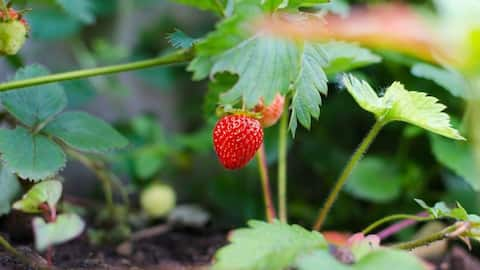Your comprehensive guide to organic gardening
What's the story
Choosing to grow your food is more than just following a fad; it's a commitment to eco-friendly, sustainable methods that produce healthier plants and improve the environment. There are several advantages to growing plants organically, regardless of your level of gardening experience. However, if you wish to have a thriving organic garden, here are some points you need to keep in mind.
Tip 1
Right location
The most crucial stage is selecting the appropriate location. The area needs six to eight hours of sufficient sunshine per day. Sunlight is essential for organic kitchen gardens, so avoid planting in shaded or low-light areas. Similarly, avoid planting saplings next to big trees. This keeps the new plants' and the tree's roots from competing with one another for moisture.
Tip 2
Be sure of the soil
Begin with nutrient-rich soil by incorporating compost, organic matter, and well-rotted manure. Don't go for the soil available in the market. Those contain artificial substances that may not be beneficial for your plants. Instead, purchase healthy soil, even if it means spending a little more money. Investing in high-quality soil provides a fertile foundation for plant growth.
Tip 3
Seed selection
Choose organic, non-GMO (genetically modified organisms)seeds to ensure the health and purity of your plants from the start. This contributes to biodiversity and supports sustainable agriculture practices. Selecting plants that are native to your region leads to lower maintenance. Furthermore, tackle weeds manually or with organic methods like mulching to avoid the use of chemical herbicides. Regular weeding maintains a clean and thriving garden.
Tip 4
Water wisely
Examine the soil before you water your plants because too much water can be just as harmful as not enough. Insert your finger into the ground one inch deep to check moisture. Water the soil only if it seems dry. If it feels moist, let it be. Drip irrigation, rain barrels, and water-conserving techniques contribute to a sustainable watering routine.
Tip 5
Pesticide and fertilizer alternatives
Make use of pesticide alternatives. Natural plant pesticides such as soap spray and neem oil spray are available. Besides, compost tea, bone meal, and fish emulsion are excellent alternatives to synthetic fertilizers. These natural and affordable solutions are ideal for eliminating pest infestations from organic kitchen gardens. Although making them at home requires some work, the results are fruitful.
